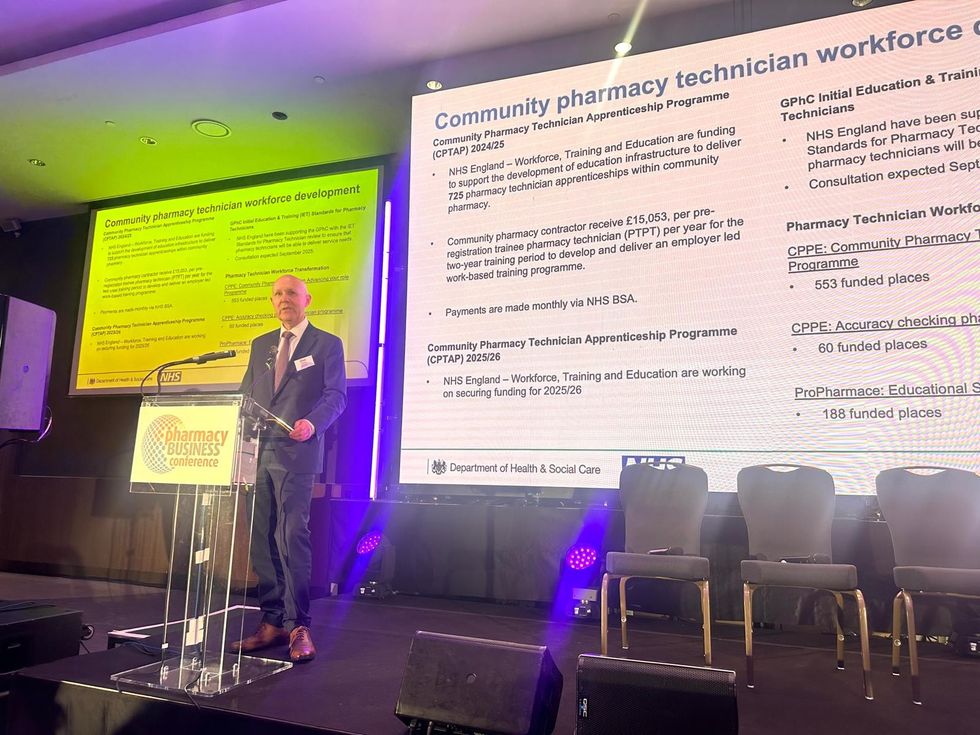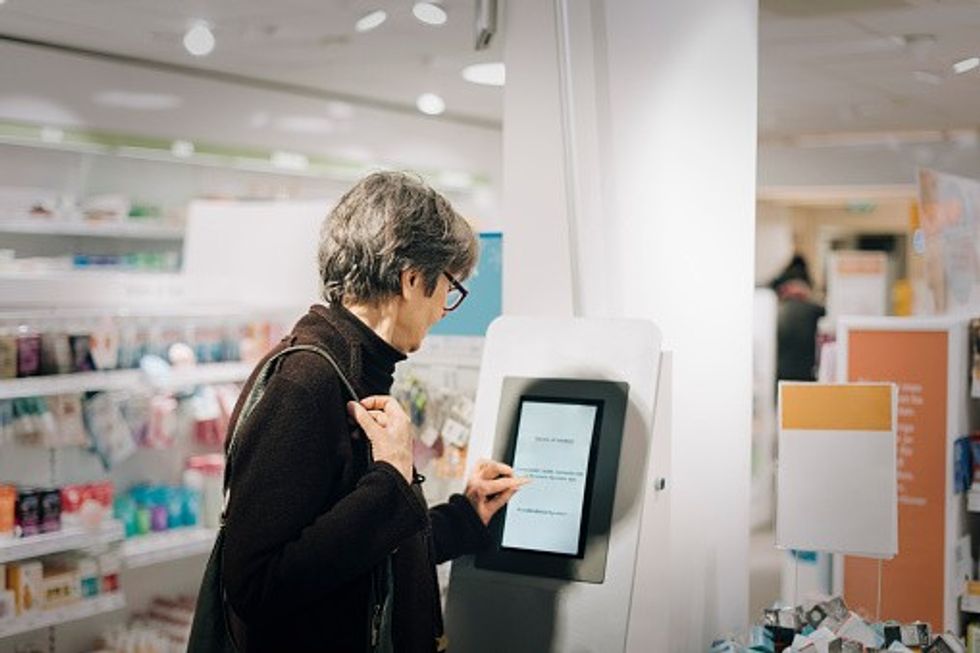Ade Williams’ pharmacy in Bristol works with local e-cigarette outlets to educate and set up a referral pathway to support patients who want to stop smoking…
For a brief period last year, I witnessed an extraordinary phenomenon. In 2016, government figures showed that 15.5 per cent of UK adults smoke, equating to around 6.1 million in the population.
However, as the pandemic took hold in the UK and the risk of more adverse outcomes linked to smoking started to emerge, scores of people, primarily young adults, came into the pharmacy to get cessation aids. It seemed as though Covid-19 would going to deliver what all the government policies and health messages had for years failed to achieve.
The sense of vulnerability and urgency to quit was driven by fear. Sadly, like so many other Covid-19 related issues, the picture over time changed, and not for the better.
A recent poll by Mintel found that 10 per cent of all cigarette users in the UK have started smoking again after quitting due to the outbreak’s strain. The stress of the Covid crisis fuelling a mass embrace of the habit, with more than half of smokers “stress-smoking” more during the pandemic.
Worryingly, 39 per cent of smokers aged 18-34, the same people group I and many community pharmacy colleagues helped last year to pack the habit, now saying they are smoking more regularly.
Reducing the prevalence of cigarette smoking long before Covid-19 has been a primary objective for the government and all devolved administrations.
Smoking is the most significant cause of preventable deaths in England, and the health risks associated with smoking well documented. This not only puts a heavy burden on the healthcare system but also has a substantial social impact.
Its link to health inequalities is more evident because it is more prevalent amongst the most vulnerable in our society, with low educational attainment and poor socioeconomic status.
Even as smoking rates progressively reduced, these patients remained the most difficult
to reach with cessation services.
Recent years have also seen many local authorities stop providing locally commissioned
NHS stop smoking service, citing funding constraints. The postpandemic financial reckoning may yet see more strain on what is left in the coffers.
The Healthy Living pharmacy ethos community pharmacy teams, proactively supporting patients to quit and advising on the best evidence-shaped approach, deliver successful outcomes.
In Bristol, the Bedminster Pharmacy team, even after our local NHS service was decommissioned, continued to provide support. We know it increases access and offers our patients the best chance of quitting. The evidence supports this approach primarily for the ‘hard to reach’ vulnerable group.
Our team collaborates with a variety of local contacts in the community. Local midwives refer pregnant patients and their partners to us. Around one in 10 pregnant women still smoke, and locally, our prevalence is higher than the national rate.
Our own experience demonstrates the unique potential of community pharmacy to provide
healthy living interventions and behavioural change support, expertly tailored to our localities.
Skilled behavioural support with or without a combination of pharmacotherapy evidence is the most effective way to help someone quit smoking. The whole team has a role to play; colleagues are all trained stop smoking advisors and can confidently deliver a personalised service. We know patients are up to four times as likely to quit if supported by trained
practitioners.
Nicotine replacement therapy is an option, alongside other pharmacotherapy options, including Champix or Zyban, both prescriptions only. We can guide patients to make the choice that best suits their needs.
Nicotine replacement products come in different formulations such as patch, chewing gum, inhalator etc. It is always worth noting that patients sometimes have unfounded concerns about taking too much nicotine or becoming addicted to nicotine products.
Not using enough nicotine replacement products is the more significant risk and contributes
significantly to quit attempt failures. Driving that message across is vital.
While the consensus on the merits of pharmacies supporting patients to quit is unequivocal,
much more contentious has been the use of electronic or e-cigarettes.
Electronic or e-cigarette handheld devices allow users to inhale nicotine without producing
as many dangerous chemicals produced by smoking tobacco have become more and more popular. They are now the most effective and widely accepted smoking cessation aid.
In 2016, approximately 2.9 million people in Great Britain used e-cigarettes. They do not produce tar or carbon monoxide – two of the most poisonous substances present in tobacco smoke. Although e-cigarettes may carry a small fraction of the risk of cigarettes, the evidence of their long-term safety profile continues to develop on this with nothing of significant concern yet.
Public Health England unambiguously recommends that patients should be supported to use e-cigarettes to cut down, called the harm reduction approach or to stop smoking altogether. It lays its stall in a comprehensive review of evidence and an accompanying document highlighting the implications of this evidence for policy and practice of evidence on e-cigarettes published in early 2018. This was their fourth report to review e-cigarettes based on emerging information on the effects of long-term use.
The document: ‘Electronic cigarettes: A briefing for stop smoking services’ by the National
Centre for Smoking Cessation and Training (NCSCT) in partnership with Public Health England has been an excellent resource for our team.
I would recommend it to anyone trying to assess the research evidence and learn the best practice guidance around e-cigarette use. The smoking cessation training modules by the NCSCT likewise offer excellent resources to empower and embed best practice.
In the face of growing evidence showing that electronic cigarette can be a helpful stop smoking aid, Bedminster Pharmacy adopted the PHE-advocated harm reduction approach with its acceptance of the role of e-cigarettes to help people. I also helped Bristol commissioners design our city-wide smoking cessation pathway around this.
I know this approach offers a successful practical but safe option underpinned by emerging evidence. Bedminster pharmacy works with local e-cigarette outlets to educate and set up a local referral pathway to support patients.
There is now an ambition to make the nation smoke-free. Community pharmacy must champion and deliver this, working in partnership with other organisations. The social impact alongside the health implications of smoking is well appreciated, we are the bridge to turn the aspiration into saving lives.
Ade Williams is superintendent pharmacist at Bedminster Pharmacy in Bristol.
This article also appeared in the May issue of Pharmacy Business.








 Health Secretary Wes Streeting addresses Pharmacy Conference via video
Health Secretary Wes Streeting addresses Pharmacy Conference via video  David Webb, chief pharmaceutical officer of NHS England
David Webb, chief pharmaceutical officer of NHS England Shailesh Solanki, executive editor of Pharmacy Business
Shailesh Solanki, executive editor of Pharmacy Business L-R: Yasmin Karsan, Pritee Panchmatia and Fin McCaul
L-R: Yasmin Karsan, Pritee Panchmatia and Fin McCaul  L-R: Baba Akomolafe, Rachna Chhatralia, Patricia Tigenoah-Ojo and Raj Matharu
L-R: Baba Akomolafe, Rachna Chhatralia, Patricia Tigenoah-Ojo and Raj Matharu L- R: Nicola Stockmann, Robert Townsend, Atul Patel and Amerjit Singh
L- R: Nicola Stockmann, Robert Townsend, Atul Patel and Amerjit Singh Wole Ososami, lead pharmacist at Westbury Chemist
Wole Ososami, lead pharmacist at Westbury Chemist








 A woman using kiosk at pharmacy store gettyimages
A woman using kiosk at pharmacy store gettyimages  Pharmacist examining commissioning machine in pharmacy gettyimages
Pharmacist examining commissioning machine in pharmacy gettyimages